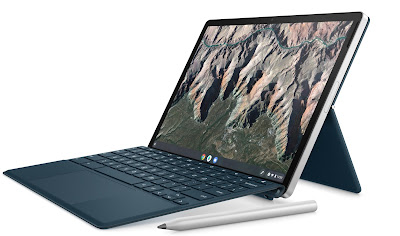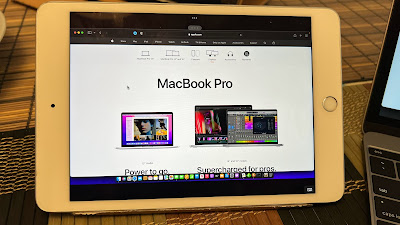Apple has the formula down for entering a market and thrive. It did it with the iMac/iBook, iPod, iPhone, iPad, EarPods, Apple Watch, and services and it can continue to do that as the giant California company continues to expand into other markets. In looking at how Tesla and other auto companies are doing in the EV market, I came to the conclusion that Apple or anyone else who follow Apple’s formula for getting a product to the market can hope to do well and thrive.
I’m a Fisker Ocean fan and I have a reservation for an Ocean. It’s a risk I know but given the history of the company and its founder, Henrik Fisker, I think Fisker has the making of an Apple-like story in the auto industry. But I also believe that if Apple ever does enter the market, it has the ability to duplicate the success it has found in the computing and mobile markets.
This all started when I started looking at the financial numbers from Tesla to see if there is any justification for Fisker’s value to increase because during an excited chat with a friend who is an even bigger Fisker fan than I am, I bought a fews shares and have accumulated about 100 shares over the last year. In my wildest dream, I am hope those shares will pay for my Ocean. I have since concluded it’s not going to happen. Oh well…
But I got to thinking about how Fisker, Lucid, or even a number of new EV entrants can survive much less thrive in a market where Tesla is the giga (because it has giga factories) gorilla in the room and where traditional auto makers have finally woken up to the changing market and are about to release dozens of their own EV models.
Well, Fisker can thrive in the long term. Apple certainly can. Any of these new electric vehicle makers can. Okay, it’s a lot harder than just stipulating what I think but really, all of these companies can. You only have to look at the PC and smartphone markets to see what I have concluded is plausible.
Take the PC market. In the 1970s, there were many companies that came out with their own computers including Apple. Later in the 1980s, Apple pivoted with the Mac while the PC market continued with DOS for a while until Windows came up and crushed Apple in the 90s.
Meanwhile, the PC landscape was thriving with dozens of clones of the IBM Personal Computer all running DOS and later Windows. I recall seeing tons of ads in newspapers and magazines from companies that no longer exist while HP, Compaq, Dell, and IBM sort of came through. And remember how Sony, Toshiba, and other Japanese electronic companies also go into the games.
It seemed like every week, there were new PC makers. Of course, that also mean the landscape was littered with corpses of computer companies that did not make it. In a way, it was a race to the bottom in terms of prices and the margins became too low for these companies to stay in business.
This may sound like it is going against my assertion that any EV company can thrive in the market. Let me continue. Remember how Apple almost went bankrupt? But now it’s the biggest public company in the world? Right, Apple was able to resurrect its fortune in the 2000s and beyond because it stuck to a formula that is so simple that anyone can emulate. It’s came out with a top notch product in a market that already has many players. And despite facing intense competition and sometimes priced higher than its competitors, Apple products continue to sell and demand for it has only increased over the years. Apple has managed to differentiate itself from the rest of the market. In some respects, one can argue that it redefined the market and forced competitors to play in its terms. It did that with the original iPod and it has changed the mobile market dominated by Blackberry. Where is Blackberry these days, by the way?
It’s now doing that in the PC market by designing and incorporating the Macs with its own chips. Now, other PC and chip makers are scrambling to duplicates Apple’s game plan. If someone else can do it and their PC or laptop has the same appeal as the Macs, they stand to gain a lot.
The only pitfall in all this? Well, Apple’s method has a flaw - it has to keep innovating. If it stops innovating, it will die. Just like a shark - if it stops swimming, it will sink (yeah, I googled to make sure it’s true - however, not all sharks will die if it sinks because some can still breath).
So, not a flaw for Apple because I just do not see it stop innovating at all. So, Apple should do fine. And if Apple does enter the market with its own electric car, it stands a good chance of carving a piece of the overall auto market for itself. Now, it cannot release a Tesla clone. If it does, who is going to buy it? And you can get any Apple car will cost a pretty penny. Won’t be cheap. So, why pay extra for a Tesla clone simply because its behind Apple ecosystem? I’m afraid it will not be enough. So, Apple will need to bring more to the game.
And it means Fisker will have to as well. So far, I’m encouraged by what I am seeing despite some features like the California Mode being more of a gimmick than a must need feature or an “oh wow, I didn’t know I needed this until Fisker showed me”. I’m glad Fisker is not trying to up sell the California Mode since I think other EV makers can duplicate or have similar features via a software update on their cars.
So, there are innovations and then there are gimmicks. These EV companies have to look at what they can offer the market that sets themselves apart.
And speaking Fisker. This is not the original company Henrik Fisker started. Prior to Fisker Inc., there was Fisker Automotive. Because you probably have not heard of it, your guess that it did not do well would be correct. However, Henrik Fisker is back and the Ocean and the upcoming Pear are looking strong. The difference between Fisker now and previous efforts by Henrik Fisker is the focus on innovation and bring something new to the market. Personally, it sounds a lot like Apple’s own story which is why I think Fisker will do really well this time around.
Given the rapid pace of how markets today evolve, any one of these car makers can become the next Tesla. Maybe not a trillion-dollar company like Tesla because the market can support a lot of companies that are worth tens of billions, each with their own segment of the market, drivers, and fans.
These EV companies do not need to go bankrupt, go wondering in the woods for a few years, and then come put with something different. They can look at these other companies that have had setbacks and see how they’ve reinvented themselves and what is it about these companies and their products that are so sought after.



